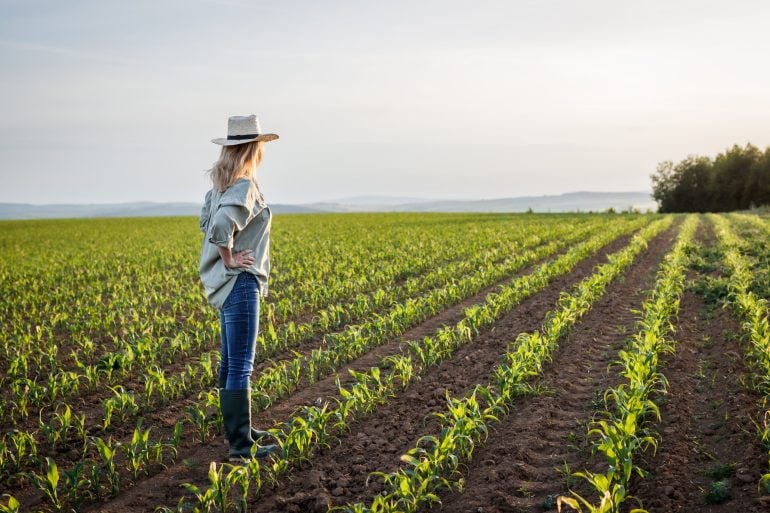In the East coast bubble, it’s easy to forget that Australia’s economy is in large part powered by heavy industry and of course, agriculture.
Recently, the technology and agriculture sectors collided at the evokeAG conference in Perth, organised by Agrifutures Australia.
Within a theme of Exceptional Edge, Agrifutures Chair Cathy McGowan highlighted the importance of connecting, building communities and converting ideas into action.
Here are five key takeaways from this year’s conference:
1. 2024 – The Year of the Cockroach
Following an intense period of lofty valuations and ready access to cheap capital over the past couple of years, Tim Neale (Chairman of the AusAgritech Association and founder of Datafarming) characterised 2024 as the year of the Cockroach.
A combination of lower (more realistic) valuations, tighter access to capital and focus on revenue pathways are expected to dominate discussions between investors and founders.
It will be survival of the fittest. In addition, we expect to see further consolidation and collaboration between adjacent solution providers. For example, CeresTag announced collaborations with Agriprove in livestock carbon credits (Tags for Tonnes) and Stocktak (dMRV traceability solutions in livestock).
2. Investors prioritise founders with impact
Over 50 startups and scale-ups were showcased at evokeAG in 2024. Founder resilience, coachability, communication skills, and a clear understanding of the problem they are solving are arguably more important than a myopic focus on technology for a company.
Successful founders are building businesses based on outcomes and impact, particularly in ClimateSmart agriculture that helps mitigate production risks of extreme weather events and adapt to the new normal.
If Australia aims to capitalise on its potential to be a climate tech superpower, investors are a key part of the equation. Investible’s Climate Tech strategy has backed 30+ early-stage impact-focused startups through our Funds and Club Investible syndicate, and we are proud to be on the front lines of the net zero shift.
3. Carbon is a hot topic
The rush to secure long-term carbon credits from agriculture-based projects generated intense debate across several sessions.
Companies such as Agtuary, Regrow Ag, FarmLab, and Agriprove were all promoting a range of solutions.
However, farmers seem increasingly concerned over the lack of transparency on soil carbon assessment methodology, long-term land-lock covenants, and lack of reward for those who already banked soil carbon as part of established good agricultural practice.
They are seeking a better understanding of their baseline measurements to assess the impact of current operations (e.g. fertiliser, fuel, chemical and methane emissions) and the ability to inset against Scope 3 commitments.
Meanwhile, the application of global IFRS S1 and S2 accounting and sustainability disclosure standards are set to demand more transparency in emissions liabilities vs offset assets.
Carbon credits generated on the current ACCU methodology are derivatives, not assets. And so the question is one of verifiable permanence of carbon abatement and the fiduciary risk to those organisations with carbon offsets currently sitting on the balance sheet.
Watch this space.
4. Regenerative farming and Indigenous culture
Regenerative farming featured regularly in various conversations during the week. In its simplest form, it highlights the restorative value of taking a systems view of agriculture, looking after natural capital for future generations. It was highlighted on several occasions that Australia’s First Nations people have been effectively doing this for over 80,000 years.
Companies such as Loam Bio (soil microbes), Converte (biological crop protection), Azaneo (electric pulse weeding) and Rainstick (plant stimulation) are emerging with a unique range of solutions.
The unique opportunity for Australian agriculture is to actively embrace indigenous systems thinking, build resilience and deliver a core competitive advantage in global markets.
5. The rise of AI and smart farms
As a meta-technology enabled by computing power, data and deep learning, AI is set to transform Australian agriculture with a level of speed, insight, and accuracy previously unthought of.
AI is enabling sensing, robotics and decision support for a significant number of startups showcased at evokeAG 2024 including
- Stoktake (animal facial recognition)
- Laconik (in field field trials)
- Agbot (Remote Monitoring)
- Agronomeye (digital twin land datasets)
- Bitwise Agronomy (crop assessment)
- BoostAI (Machine Vision)
- GoannaAg (irrigation scheduling)
- Optomni (Food Loss)
- Protequus (Equine monitoring)
- Swarmfarm (farm robotics)
- Yarta (decision support)
- Y-Trace (bee monitoring)
- Zondii (instant wool micron testing).
I expect to see intense competition, collaboration and consolidation in this space that will drive global growth and impact opportunities.
I’ve no doubt the next decade will see a continued advancement of our local agtech sector, demonstrating that Australian innovation in a critical industry will help drive humanity forward.
- Rob Hulme is a Venture Partner for the Asia-Pacific based VC firm Investible and CEO & Group Director of The Boralis Group.




















Trending
Daily startup news and insights, delivered to your inbox.